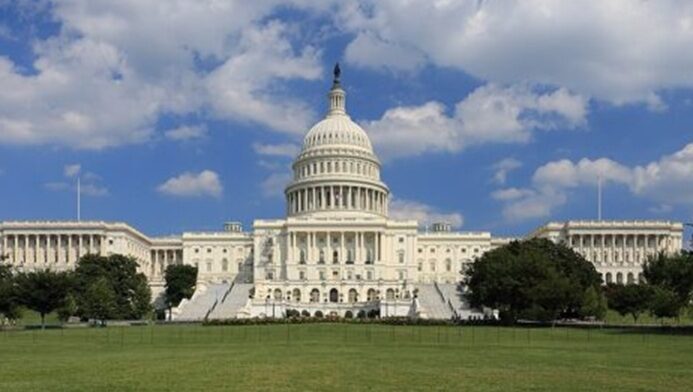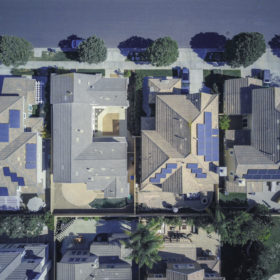American Battery Factory (ABF), a U.S.-based battery manufacturer, yesterday signed a strategic alliance with Anovion to become a preferred vendor to supply synthetic graphite anode material to ABF’s lithium-iron phosphate (LFP) battery cell production line. In addition to a domestic supply agreement, the alliance also includes joint investment opportunities in emerging technologies to improve lithium battery performance and supply chain optimization.
ABF and Anovion were recent recipients of federal grant funding from the Department of Energy under President Biden’s 2021 Bipartisan Infrastructure Law, which awarded a total of $2.8 billion to advanced materials companies that have begun to source battery material components from new and recycled materials using lithium, graphite and other materials sourced in North America.
American Fork, Utah-based ABF is receiving $57.7 million in DOE funding to build and operate a 5,000 metric tons per year lithium hydroxide cathode material production facility near sedimentary mining resources in Tonopah, Nevada. The cathode facility will have the ability to expand over time to produce 30,000 MT/y of the LiH material as demand for EV batteries ramps up. The Nevada facility will create 150 jobs and the facility is partnered with the University of Nevada – Reno and the Southwest Central Regional Economic Development Authority to support hiring and regional business interest in the advanced materials facility.
Chicago-based Anovion is receiving $117 million in DOE funding under the Bipartisan legislation to expand and modify a $294 million capital cost synthetic graphite anode production facility in Sanborn, New York, in order to produce 150,000 MT/y of anode material for EV and energy storage applications. The facility near Niagara Falls, NY will have initial production capacity of 35,000 MT/y and will bring 300 long-term jobs to a region effected by industrial job offshoring over the years. Community support for the Anovion project comes from Niagara County and the State University of New York – University of Buffalo.
“Anovion’s leadership team has a proven track record of manufacturing a high-quality product with excellent performance and consistency,” said Paul Charles, CEO of American Battery. “We are pleased to collaborate with a US-based supplier who shares our values and vision for the overall battery market and is equally committed to making energy independence a reality for everyone,” said Charles.
The Department of Energy on October 19 awarded $2.8 billion in a first phase of project funding under President Biden’s Bipartisan Infrastructure Law to expand domestic manufacturing of batteries for EVs, energy storage, aerospace and defense applications, among others. ABF and Anovion were among 20 corporate recipients to funding of advanced material production and recycling facilities located in 12 states.

Image: U.S. Department of Energy
Battery Manufacturing Award funding supports:
- Developing enough battery-grade lithium to supply approximately 2 million EVs annually.
- Developing enough battery-grade graphite to supply approximately 1.2 million EVs annually.
- Producing enough battery-grade nickel to supply approximately 400,000 EVs annually.
- Installing the first large-scale, commercial lithium electrolyte salt (LiPF6) production facility in the United States.
- Developing an electrode binder facility capable of supplying 45% of the anticipated domestic demand for binders for EV batteries in 2030.
- Creating the first commercial scale domestic silicon oxide production facilities to supply anode materials for an estimated 600,000 EV batteries annually.
- Installing the first lithium iron phosphate cathode facility in the United States.
The president’s American Battery Materials Initiative is being led by a steering committee of White House officials and coordinated by the Department of Energy with support from the Department of Interior. Its passing stems from Executive Order 14017, the critical minerals and large capacity battery supply chain review, which recommended taking a mineral by mineral approach to environmentally source domestic mining and processing capabilities, as well as recycling of materials, and forge partnerships and alliances to diversify international supply chains, as well as streamlining engagement with Tribal Nations and reducing labor and permitting costs by sourcing domestic materials.
Other recipients of DOE funding under the ABM initiative include Ascend Elements, Cirba Solutions, Group14 Technologies, Novonix, Piedmont Lithium and Talon Metals.
This content is protected by copyright and may not be reused. If you want to cooperate with us and would like to reuse some of our content, please contact: editors@pv-magazine.com.









By submitting this form you agree to pv magazine using your data for the purposes of publishing your comment.
Your personal data will only be disclosed or otherwise transmitted to third parties for the purposes of spam filtering or if this is necessary for technical maintenance of the website. Any other transfer to third parties will not take place unless this is justified on the basis of applicable data protection regulations or if pv magazine is legally obliged to do so.
You may revoke this consent at any time with effect for the future, in which case your personal data will be deleted immediately. Otherwise, your data will be deleted if pv magazine has processed your request or the purpose of data storage is fulfilled.
Further information on data privacy can be found in our Data Protection Policy.